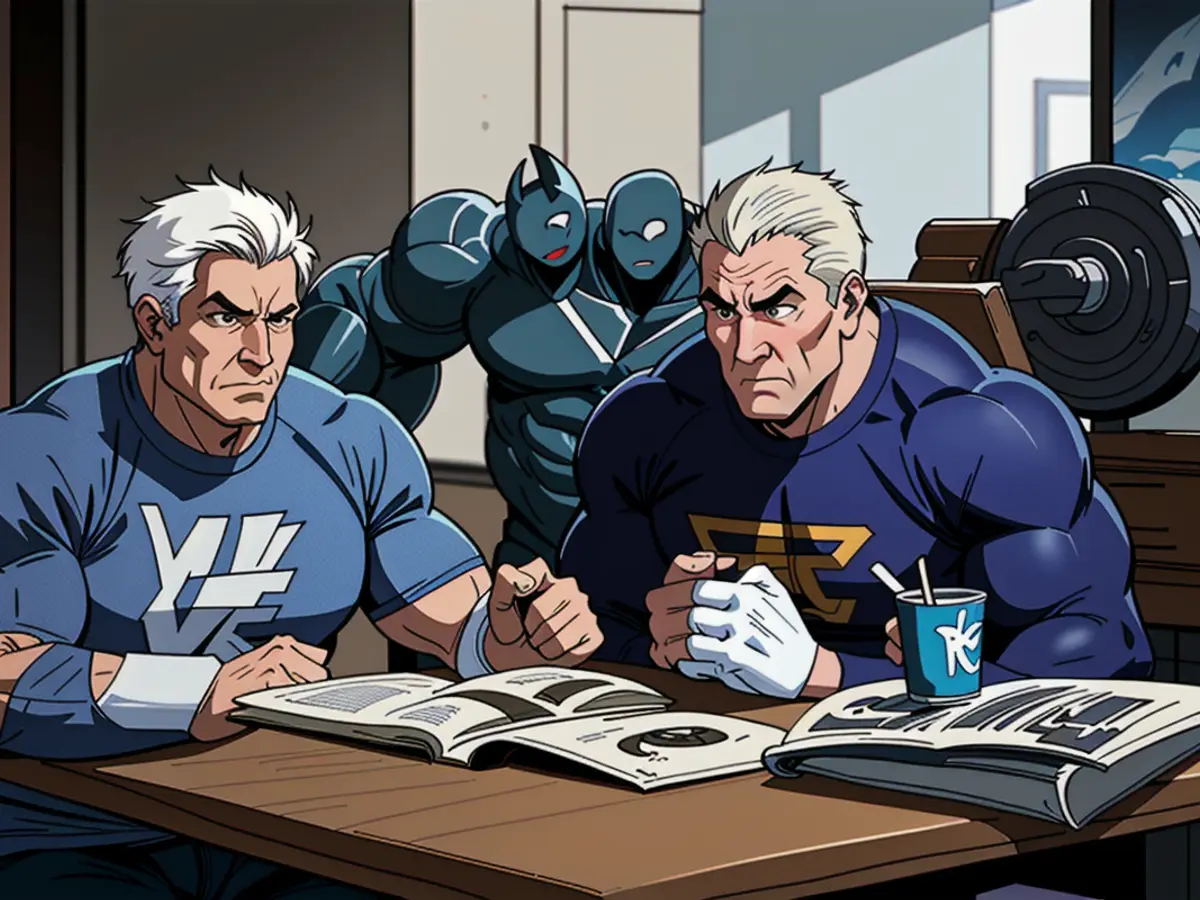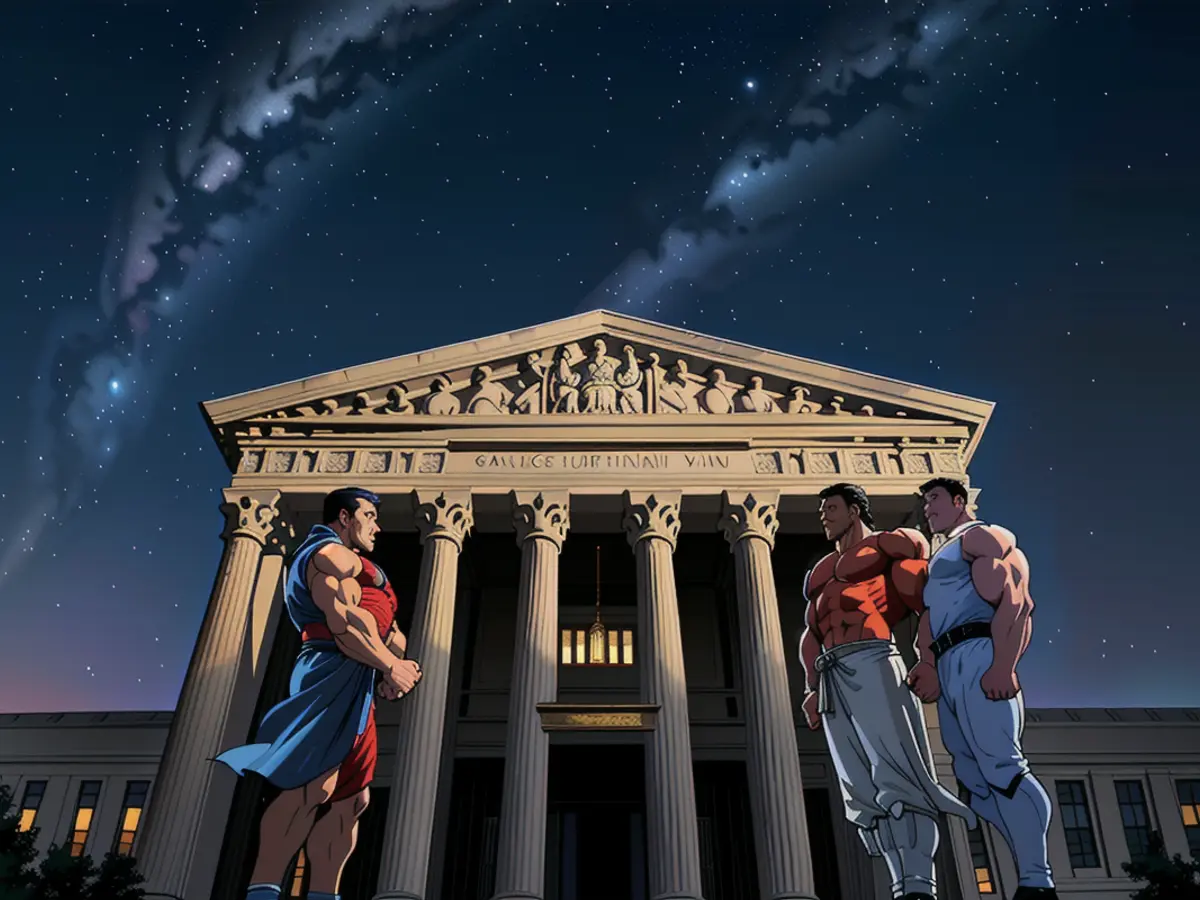The Removal of a Salvadoran Individual Serves as a Significant Moment in American History
The Tale of Kilmar Abrego Garcia: An Unprecedented Showdown of Power and Politics
Kilmar Abrego Garcia's story has spiraled into more than just the plight of an undocumented migrant imprisoned in El Salvador, becoming one of those exceptional cases that echo through history, shaping the spirit of America itself.
The fate of this deported Maryland resident now serves as a litmus test for Donald Trump's mass expulsion program and the Democrats' capacity to present a counter-narrative on the tricky immigration issue, traditionally favoring the president and his party.
Abrego Garcia's case, along with related matters, could instigate a constitutional collision between an administration unafraid to flout power and the judiciary's role in curbing an unchecked president. The outcome of this monumental legal battle hinges on whether the conservative Supreme Court majority is willing to risk wrestling with the president, a conflict they have so far seemed eager to evade.
The administration admitted in court that Abrego Garcia was deported due to an administrative error, disregarding a judge's ruling barring his return to El Salvador, where his life could be in danger. However, officials are unwilling to readmit Abrego Garcia to the U.S., arguing they lack the ability to force El Salvador to do so.
Officials have chosen to interpret the Supreme Court's ruling that the Trump administration "must 'facilitate' his return" as an endorsement of their position. They argue that since Abrego Garcia is in the custody of a foreign government, they have no power to return him.
The White House labels Abrego Garcia a terrorist, a member of the notorious MS-13 gang, who will never return to the U.S. But it has failed to produce definitive evidence supporting these claims. Instead, they have smeared Abrego Garcia's character by highlighting a domestic dispute with his U.S.-born wife and allegations of his involvement in human trafficking. Yet, Abrego Garcia was never prosecuted in either case, and his wife dismissed the accusations against him.
There's 'a Lawless President'
Maryland Sen. Chris Van Hollen visited El Salvador last week. Abrego Garcia was brought out of custody to meet him, wearing civilian clothes, in a staged photo-op orchestrated by the Trump-aligned government to embarrass the visiting Democrat.
"The sanction at hand is that he and his administration are defying a court order to provide Abrego Garcia his due process rights," Van Hollen told CNN's Dana Bash on "State of the Union" on Sunday. "They need to put up or shut up in the courts." The senator argued the case demonstrates the U.S. has a "lawless president ignoring the Supreme Court of the United States order to facilitate his return."
Democrats, hampered by former President Joe Biden's long-standing refusal to acknowledge a crisis at the southern border, have struggled to grapple with immigration politics. The Trump administration is exploiting the Abrego Garcia matter to force his supporters to side against its hardline stance, believing it holds political advantage.
However, Van Hollen contends the issues transcend one individual's plight and center on the fundamental question of presidential power, where Trump is pushing the legal limits. Van Hollen argues the president is using the scourge of gang violence to justify bypassing legal safeguards. When asked whether he would be fine if Abrego Garcia was eventually deported, given his undocumented status, Van Hollen responded, "I'm okay with whatever the law dictates."
Van Hollen has faced heated criticism from Trump and the White House over his visit. The president labeled him a "fool," and the case has prompted some Democrats, including California Gov. Gavin Newsom, to suggest the party should focus more on the economy, an issue that may resonate with voters. But Van Hollen defended his stance, telling CNN's Bash, "I don't think it's ever wrong to fight for the constitutional rights of one person, because if we give up on one person's rights, we threaten everybody's rights."

The Trump administration's border czar, Tom Homan, refuses to back down in the case, which has become a measuring stick of the administration's broader immigration approach. After all, if Abrego Garcia is returned, questions will arise about the status of hundreds of other undocumented migrants the administration claims are terrorists and gang members who were shipped to a notorious prison in El Salvador. In that case, the Trump administration would tacitly acknowledge that the courts have jurisdiction over their conduct.
A Constitutional Clash Looms, One the Supreme Court May Wish to Avoid
The Trump administration's mass deportation program—a cornerstone of the president's 2024 re-election campaign—is now entangled in multiple legal challenges. It's almost inevitable that the policies, which have already crossed the Supreme Court's threshold, will return there for a definitive verdict in a moment of historic significance.
Over the weekend, for instance, a majority on the high court temporarily halted the administration from deporting a group of immigrants in Texas under the 1798 Alien Enemies Act. Justice Samuel Alito, who dissented along with fellow conservative Clarence Thomas, denounced the decision as "unprecedented and legally questionable." The court is expected to issue a more formal ruling on whether the White House can proceed in the near future.
The use of the Alien Enemies Act is problematic for numerous reasons. Firstly, it's one of the most notorious laws in U.S. history, forming the basis for the internment of Japanese Americans during World War II, regarded as a dark chapter in America's history. Secondly, the act was designed for use in times of war to detain and deport civilians. Despite Trump's claims that the U.S. is under siege by migrants, the U.S. is not at war.
In another case related to the act, U.S. District Judge James Boasberg ruled Wednesday that the administration showed "willful disregard" for his mid-March order halting deportation flights amid a dispute over their legality. He was the first judge to find "probable cause exists" to hold administration officials in criminal contempt.
The key concerns about the use of the Alien Enemies Act revolve around the lack of opportunities for detainees to challenge the action against them in court. This notion—that constitutional rights and legal procedures are being infringed upon—is encapsulated by the Abrego Garcia case, and it's why Trump opponents like Van Hollen view it as so crucial.
In a significant twist in the drama last week, a federal appeals court rejected the administration's request to overrule a Maryland federal judge, Paula Xinis, in the Abrego Garcia case. Xinis is growing increasingly frustrated with the administration's delaying tactics and defiance after she ordered them to follow the Supreme Court's instructions and "facilitate" his return.
In a ruling Thursday, the US Court of Appeals for the 4th Circuit denied the government's emergency motion to stay Xinis' order pending appeal. Writing for the appeals court, Judge Harvie Wilkinson said the administration's claim of "a right to stash away residents of this country in foreign prisons without the semblance of due process" should be "shocking not only to judges, but to the intuitive sense of liberty that Americans far removed from courthouses still hold dear."
Wilkinson, an appointee of former President Ronald Reagan, warned of a situation in which two branches of government could "grind irrevocably against one another in a conflict that promises to diminish both."
"If today the Executive claims the right to deport without due process and in disregard of court orders, what assurance will there be tomorrow that it will not deport American citizens and then disclaim responsibility to return them?" Wilkinson asked. "And what assurance shall there be that the Executive will not train its broad discretionary powers upon its political enemies?"
The ruling encapsulates this precarious moment in American history and the question of whether the judiciary—one of the last effective checks on Trump's rule—will constrain or empower a president who sees few limits on his authority.

- The Abrego Garcia case, amidst politics and deportation, is irrevocably shaping the spirit of America, acting as a litmus test for policy-and-legislation on immigration.
- The story of Kilmar Abrego Garcia is not just general-news, but also highlights issues of crime-and-justice, as the legal battle between him and the administration could instigate a constitutional collision.
- Senator Chris Van Hollen, in warning of a lawless president, emphasized that Abrego Garcia's case underscores fundamental questions of presidential power, potentially leading to a clash with the Supreme Court as the Trump administration exploits the issue to bolster its immigration policy.
- Trump's border czar, Tom Homan, adamantly refuses to back down in the case, with potential implications for hundreds of other undocumented migrants the administration claims are linked to terrorism and war-and-conflicts.
- The use of the Alien Enemies Act in deporting immigrants has been questioned by judges, with concerns raised about the lack of due process and rights infringement – issues exemplified in the Abrego Garcia case and other related matters.
- The Abrego Garcia case, along with the mass deportation program, is entangled in multiple legal challenges, with a definitive verdict from the Supreme Court looming, potentially marking a historic moment in American politics and the role of the judiciary in curbing presidential power.








